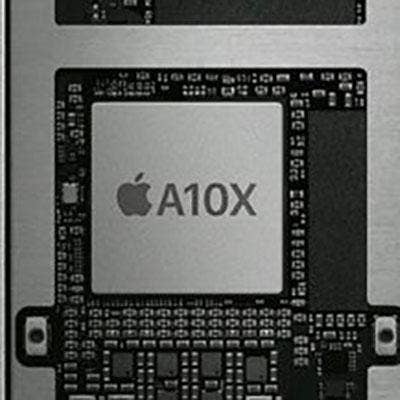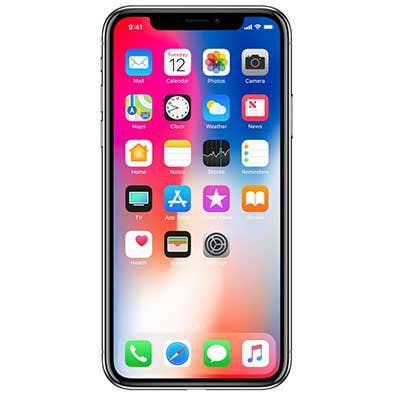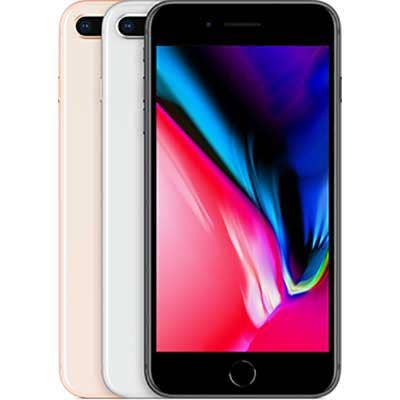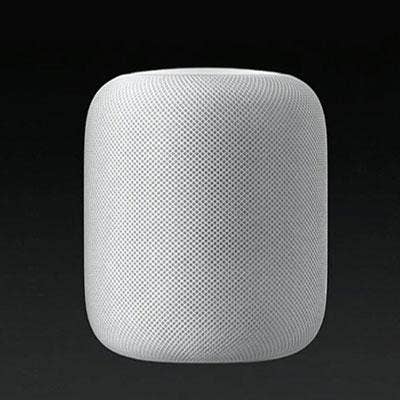5 Big Revelations About Apple This Week
The Future Of Apple
The new iPad for 2018 just arrived, and we already have plenty of trustworthy details about what the 2018 iPhone lineup may look like. But what about farther down the road? This week, Apple watchers received a blitz of information about expected changes in future iPhone and Mac releases beyond 2018, along with signals about the company's intentions in areas such as artificial intelligence. To boil it all down, in the following slides we've rounded up what you need to know about the five latest Apple revelations.

Apple May Be Breaking Things Off With Intel
As soon as 2020, Apple may stop using Intel chips for its Mac lineup in favor of its own, internally developed processors, Bloomberg reported this week. The move is reportedly part of an initiative (code-named Kalamata) that aims to make all of Apple's devices work in a more similar fashion. One specific goal of a switch to Apple-developed chips could be an improvement in battery life, which would be assisted by software changes, according to the report. The project is reportedly in its early stages. Apple started using Intel x86 processors for Macs in 2006, as a part of a move away from IBM-built PowerPC processors, but Apple already uses its own processors to run iPhones and iPads.

Touchless Gesture Controls For iPhone?
A new method for interacting with the iPhone may be in the works at Apple. A Bloomberg report characterized the new method as a "touchless" gesture control because it would let users do certain tasks on the iPhone just by moving their finger near the screen. There would be no need to tap the screen, and the iPhone would in fact be able to tell how close someone's finger is to the screen, Bloomberg reported. The report doesn't identify specific uses being considered for the touchless gesture controls—which are described as being in the early stages with the technology not ready for release until "at least" two years from now.

Curved Screen For iPhone?
In the same article, Bloomberg reported that Apple is exploring the development of a curved screen for future models of the iPhone. The design that's being considered is for a gradual curve from the top to the bottom of the display—in contrast to the curved screen on Samsung Galaxy phones, which feature a curve on the right and left sides of the display. A curved screen on future iPhones would be enabled by the use of OLED display technology, which is more flexible than the LCD that appeared in all iPhones up until the iPhone X last year. The debut of a curved iPhone screen is at least two years away as well, according to Bloomberg.
A New Mac Pro Is Planned For 2019
The Mac Pro—Apple's cylindrical, powerhouse desktop PC—hasn't gotten a refresh since late 2013. But last year, Apple executive Phil Schiller said the company was "in the process of completely rethinking the Mac Pro." Now, we have a few more details on Apple's plans for the Mac Pro along with a general launch date—2019—via a TechCrunch report. The Mac Pro that's currently in the works will integrate an array of insight from creative professionals, such as video editors, visual effects creators and music producers—ultimately leading to the engineering of optimal workflows for the Mac Pro, according to the report. Because Apple builds all of the hardware and software for the Mac, the company has the ability to "attack the entire stack" and "optimize for performance," Tom Boger, senior director of Mac hardware product marketing, said in the interview with TechCrunch. Boger added, "We want to be transparent and communicate openly with our pro community, so we want them to know that the Mac Pro is a 2019 product. It's not something for this year."

Apple Hired Google's AI Head
In a move signaling Apple's intentions to become a stronger player in artificial intelligence, the company this week hired the former AI chief at Google, John Giannandrea. The hire came just a day after Giannandrea had resigned from Google. Apple's AI efforts thus far have largely failed to impress: The company failed to capitalize on the lead it had on voice assistants by launching Siri back in 2011, and then missed another opportunity by using an even less-capable version of Siri in its recently released HomePod speaker (pictured). Notably, Apple has repeatedly expressed a commitment to not using private customer data in developing products, which can be a disadvantage when seeking to train AI systems.
Apple told The New York Times, which first reported on the hire, that Giannandrea will head up Apple's machine learning and AI strategy, and will report to CEO Tim Cook. In an email to Apple staff obtained by the Times, Cook said that Giannandrea "shares our commitment to privacy and our thoughtful approach as we make computers even smarter and more personal."